
Styrofoam Ban

What is expanded polystyrene (Styrofoam) and why is it being banned?
Expanded polystyrene is a petroleum based plastic product. It is not biodegradable and cannot be recycled. According to the Environmental Protection Agency (EPA), it can have serious impacts on human health, wildlife, and the aquatic environment (EPA-842-B-02-002). Polystyrene also contains toxic substances such as Styrene and Benzene, which are known carcinogens.
What items are affected by this ban?
Food services articles, coolers, unencapsulted floating docks, platforms, and buoys will be impacted by this ban.
How has polystyrene been phased out?
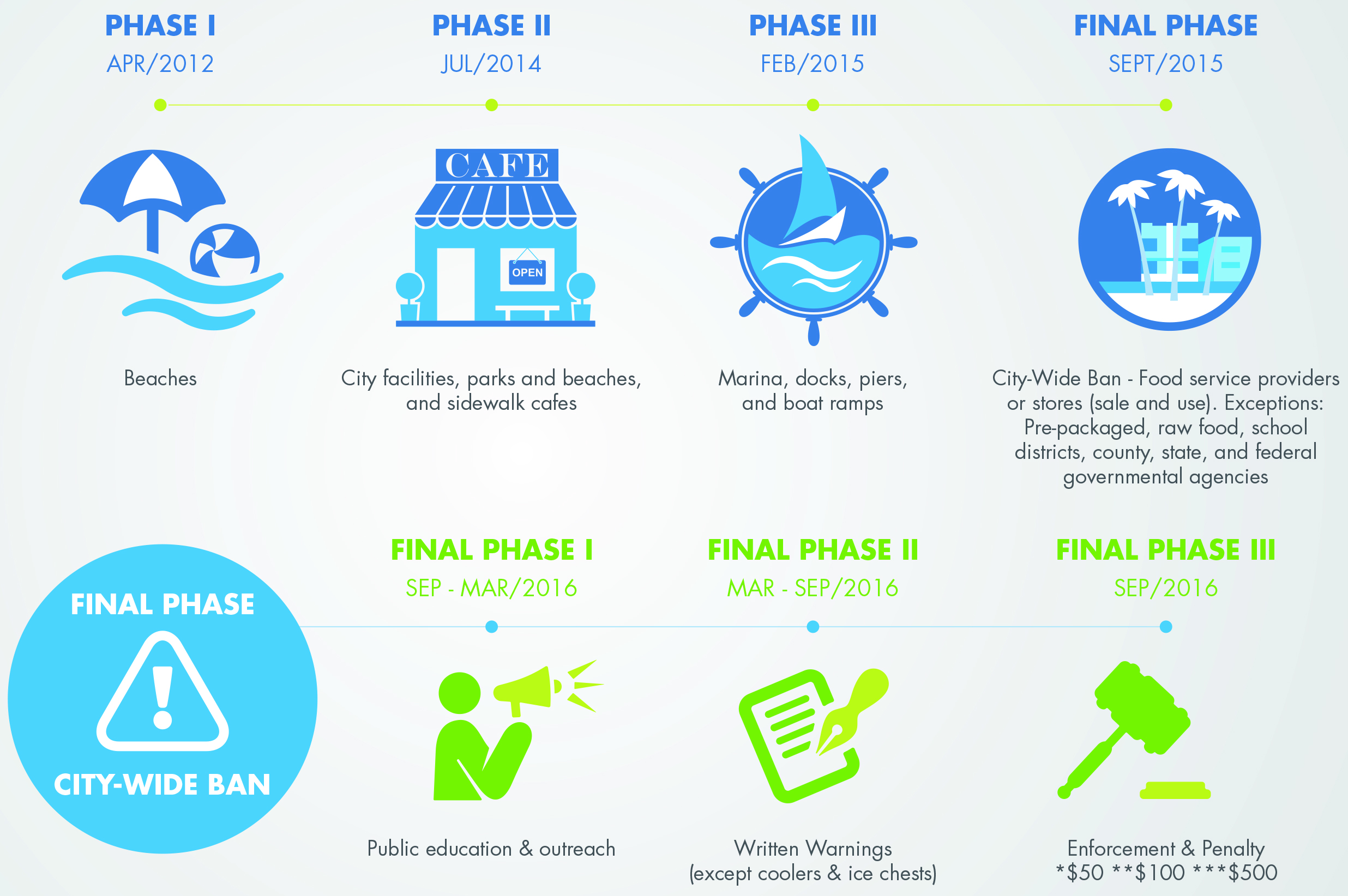
When will unencapsulated polystyrene docks be banned? 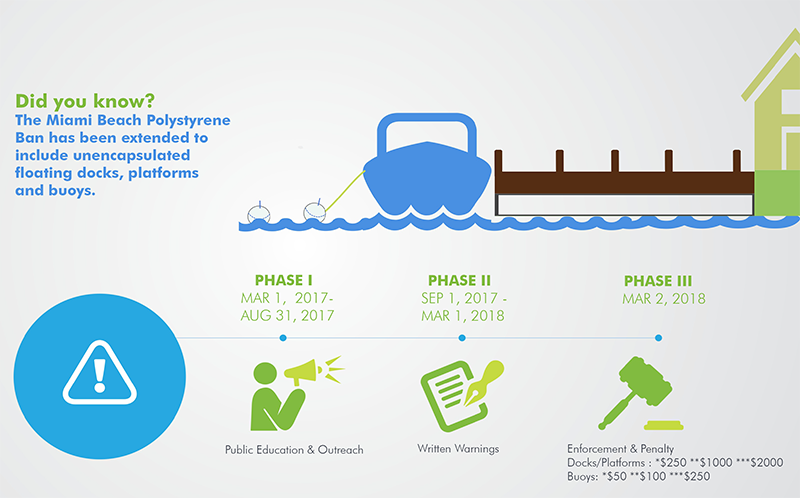
What alternatives are there for food service articles?
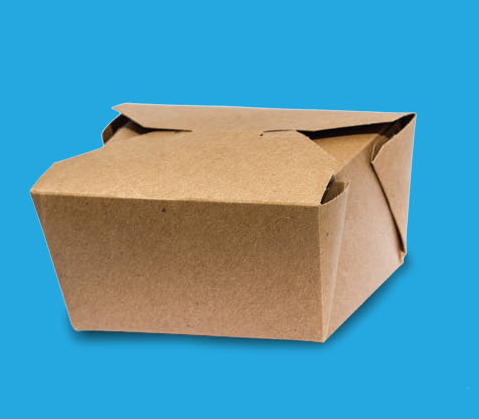
Bagasse
Bagasse is the fibrous material that remains after sugarcane stalks are pressed. Bagasse variants refers to fibrous materials from other plant types that result from similar pressing processes. Food serviceware made from bagasse is a light brown or white (bleached) pressed and molded fiber material. It is sometimes coated with a thin layer of plastic or Polylactic Acid (PLA)1
Recyclable/Compostable/Garbage: This material is typically compostable and recyclable.
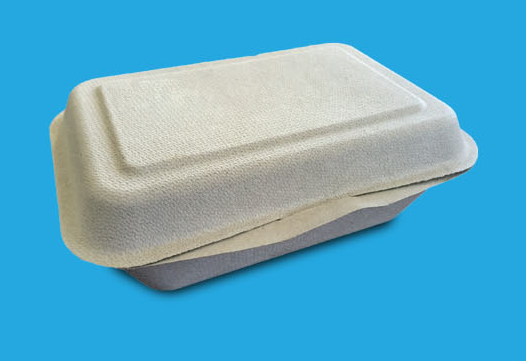
Wheat straw/ Plant-fiber
Wheat straw is the fibrous residue that remains after grain is extracted from wheat stalks. Food service ware made from wheat straw is typically a light brown or white (bleached) pressed and molded fiber material. It is visually similar to bagasse.
Recyclable/Compostable/Garbage: This material is typically compostable and recyclable.
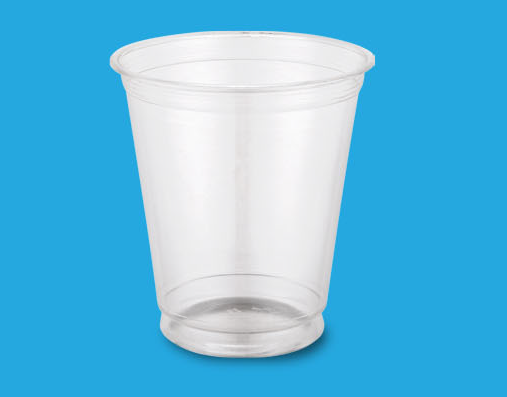
Compostable Plastics
Compostable Plastics are a new generation of plastics which are biodegradable through composting. They are derived generally from renewable raw materials like starch (e.g. corn, potato, tapioca etc), cellulose, soy protein, lactic acid etc., are not hazardous/toxic in production and decompose back into carbon dioxide, water, biomass etc. when composted. This category includes PLA1.
Recyclable/Compostable/Garbage: This material is typically compostable and recyclable.
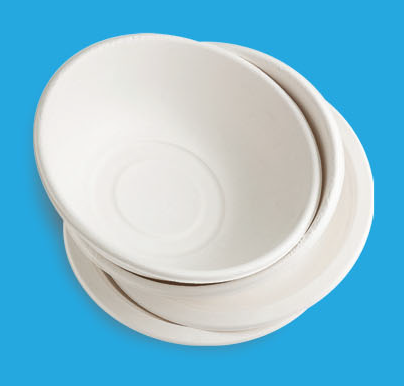
Fiber
Fiber refers to paper fiber derived from trees. Food serviceware made from fiber is often flat sheets of thick paper material folded or molded into a container shape. It is sometimes coated with a thin layer of plastic.
Recyclable/Compostable/Garbage: This material is typically compostable (without the plastic layer) and recyclable.
Miscellaneous Plastic
Miscellaneous Plastic products in this inventory are products that the vendor lists as "plastic" without providing any further detail about plastic type. There is not one set of physical characteristics that products in this material category have in common.
Recyclable/Compostable/Garbage: This material is typically recyclable.
NOTE THAT ANY POLYSTYRENE BASED PRODUCT IS NOT ALLOWED. THIS INCLUDES POLYSTYRENE FOOD SERVICE PRODUCTS THAT ARE LABELED AS BIODEGRADABLE.
What key terms should I look for in alternative materials?
1. Polylactic acid (PLA)
Polylactic acid (PLA) is a plastic polymer derived from non-petroleum sources including cornstarch, tapioca roots, and sugarcane. When marked for identification, it bears the number "7" in the center of the triangular recycling symbol. It is visually similar to PET products.
Recyclable/Compostable/Garbage: This material is typically biodegradable and recyclable.
2. Polyethylene terephthalate (PET)
Polyethylene terephthalate (PET) is a common plastic polymer type. When marked for identification, it bears the number "1" in the center of the triangular recycling symbol and may also bear the letters "PETE" or "PET". A PET container usually has a small dot left from the manufacturing process, not a seam. It does not turn white when bent. Food serviceware made from PET is usually transparent green or clear.
Recyclable/Compostable/Garbage: This material is typically recyclable.
3. Polypropylene #5 (and variants)
Polypropylene #5 is a plastic polymer that results in more rigid products than products made of PET and PLA. When marked for identification, polypropylene #5 items may bear the label "PP" or the number "5" in the triangular recycling symbol. Polypropylene #5 food serviceware products are most commonly clear or opaque black.
Recyclable/Compostable/Garbage: This material is typically recyclable.